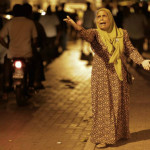A representative for a government-appointed taskforce working to coordinate responses to a national dengue fever outbreak has claimed provisional data has indicated a slight increase in infections over the last 24 hours – days after cases appeared to be declining.
Earlier this week, the government labelled the latest outbreak of dengue fever across the country as an “epidemic“ on the back of growing concerns about infection rates. By Tuesday (July 7), the outbreak had been linked to the death of seven people within a week, with a number of children reported among the fatalities.
Although today’s figures are yet to be officially released at the time of going to press, a media spokesperson for the taskforce told Minivan News that case numbers once again appeared to have increased. However, the spokesperson claimed that the anticipated increase in infection rates was not thought to be “significant” in comparison to numbers recorded earlier this week.
“We had believed that the number of [dengue] cases was being reduced. However have seen figures that suggest the number of cases were increasing again,” the spokesperson said.
The claims were made despite previous predictions that the present outbreak of the virus was beginning to be brought under control and was in decline.
On Monday (July 4), the dengue taskforce said that it had expected the current outbreak to be fully under control within seven days. The claims followed the release of official figures supplied by the same coordination body that indicated that 11 suspected cases of dengue were reported July 4, compared to 16 cases recorded Sunday (July 3) and 18 cases the day before that.
2011 spike
A media spokesperson for the taskforce said earlier this week that while dengue outbreaks were nothing new in the Maldives, the number of suspected cases of the virus that traditionally were expected to drop by this time of year had in fact spiked.
The spokesperson added that this apparent spike in infections had created a number of coordination difficulties for the new system of local administration put in place following the country’s first local council elections in February.
“Compared to last year, during these dates, figures usually go down. However, this month, there has been a spike [in numbers of dengue infection cases],” he said. “When the local councils took over [collecting data about the virus from the Health Ministry], the whole process was stalled, nothing was moving.”
The spokesperson said at the time that there was insufficient research to identify the exact factors driving a suspected spike in infection numbers of late. However, he claimed there had been “many internal and administrative problems” that when combined with the country’s wet season – resulting from the south west monsoon that runs from May to November – may have served to exacerbate the impacts of the outbreak.
According to the task force spokesperson, the decision to hand over the responsibility for detailing information on the spread of dengue from the Health Ministry to island councils had initially raised notable problems for the government; though these issues were now being resolved.
“There were some problems in getting councillors initially to work on weekends, but I think everyone has understood the severity of the outbreak,” he added.
The opposition Dhivehi Rayyithunge Party (DRP) has continued to maintain that the government had acted too slowly in its initial response in dealing with dengue outbreaks. However, the party has said it will cooperate with the government where possible to try and support efforts to limit the further spread of the virus.
 (0)Dislikes
(0)Dislikes (0)
(0)



